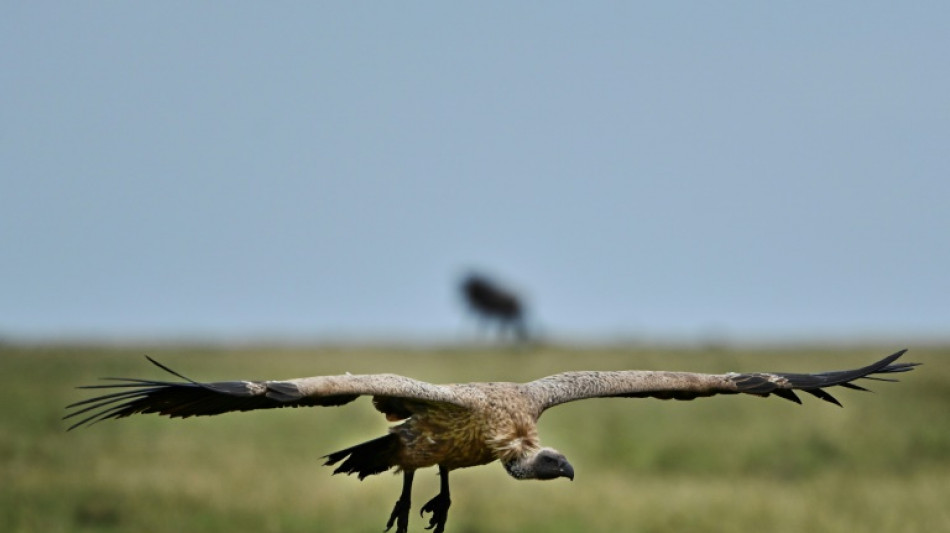
-
 Back to black: Philips posts first annual profit since 2021
Back to black: Philips posts first annual profit since 2021
-
South Korea police raid spy agency over drone flight into North
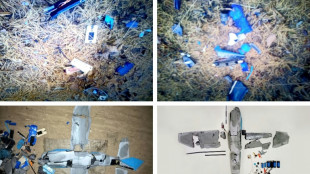
-
 'Good sense' hailed as blockbuster Pakistan-India match to go ahead
'Good sense' hailed as blockbuster Pakistan-India match to go ahead
-
Man arrested in Thailand for smuggling rhino horn inside meat
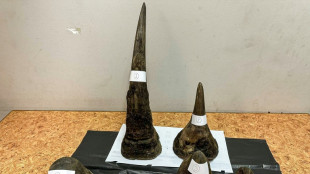
-
 Man City eye Premier League title twist as pressure mounts on Frank and Howe
Man City eye Premier League title twist as pressure mounts on Frank and Howe
-
South Korea police raid spy agency over drone flights into North
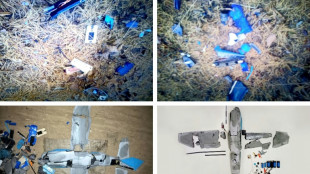
-
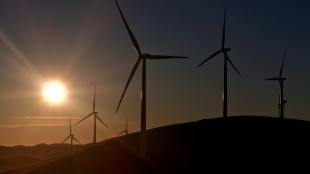 Solar, wind capacity growth slowed last year, analysis shows
Solar, wind capacity growth slowed last year, analysis shows
-
'Family and intimacy under pressure' at Berlin film festival

-
 Basket-brawl as five ejected in Pistons-Hornets clash
Basket-brawl as five ejected in Pistons-Hornets clash
-
January was fifth hottest on record despite cold snap: EU monitor
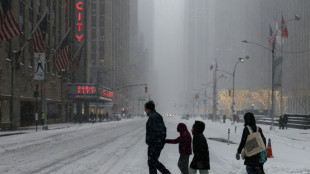
-
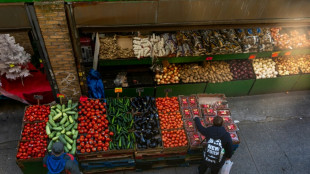 Asian markets extend gains as Tokyo enjoys another record day
Asian markets extend gains as Tokyo enjoys another record day
-
Warming climate threatens Greenland's ancestral way of life
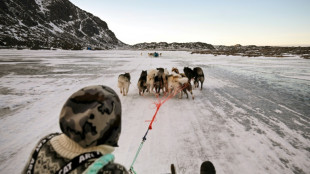
-
 Japan election results confirm super-majority for Takaichi's party
Japan election results confirm super-majority for Takaichi's party
-
Unions rip American Airlines CEO on performance

-
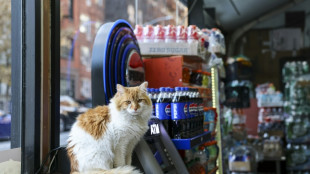 New York seeks rights for beloved but illegal 'bodega cats'
New York seeks rights for beloved but illegal 'bodega cats'
-
Blades of fury: Japan protests over 'rough' Olympic podium

-
 Zelensky defends Ukrainian athlete's helmet at Games after IOC ban
Zelensky defends Ukrainian athlete's helmet at Games after IOC ban
-
Jury told that Meta, Google 'engineered addiction' at landmark US trial

-
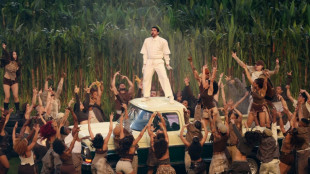 Despite Trump, Bad Bunny reflects importance of Latinos in US politics
Despite Trump, Bad Bunny reflects importance of Latinos in US politics
-
Hemogenyx Pharmaceuticals PLC Announces Issue of Equity

-
 How Fort Myers Dentists Create Long-Term Care Plans for Healthy Smiles
How Fort Myers Dentists Create Long-Term Care Plans for Healthy Smiles
-
Nikon Introduces the ACTION and ACTION ZOOM Binoculars

-
 Australian PM 'devastated' by violence at rally against Israel president's visit
Australian PM 'devastated' by violence at rally against Israel president's visit
-
Vonn says suffered complex leg break in Olympics crash, has 'no regrets'

-
 YouTube star MrBeast buys youth-focused banking app
YouTube star MrBeast buys youth-focused banking app
-
French take surprise led over Americans in Olympic ice dancing

-
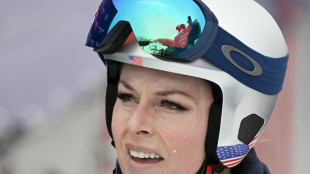 Lindsey Vonn says has 'complex tibia fracture' from Olympics crash
Lindsey Vonn says has 'complex tibia fracture' from Olympics crash
-
US news anchor says 'hour of desperation' in search for missing mother

-
 Malen double lifts Roma level with Juventus
Malen double lifts Roma level with Juventus
-
'Schitt's Creek' star Catherine O'Hara died of blood clot in lung: death certificate
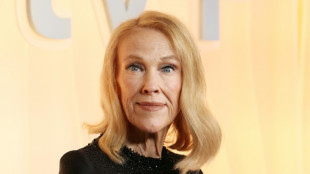
-
 'Best day of my life': Raimund soars to German Olympic ski jump gold
'Best day of my life': Raimund soars to German Olympic ski jump gold
-
US Justice Dept opens unredacted Epstein files to lawmakers

-
 Epstein taints European governments and royalty, US corporate elite
Epstein taints European governments and royalty, US corporate elite
-
Three missing employees of Canadian miner found dead in Mexico
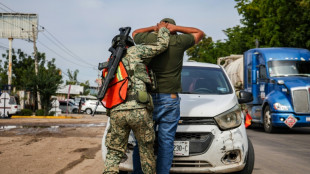
-
 Meta, Google face jury in landmark US addiction trial
Meta, Google face jury in landmark US addiction trial
-
Winter Olympics organisers investigate reports of damaged medals

-
 Venezuela opposition figure freed, then rearrested after calling for elections
Venezuela opposition figure freed, then rearrested after calling for elections
-
Japan's Murase clinches Olympic big air gold as Gasser is toppled

-
 US athletes using Winter Olympics to express Trump criticism
US athletes using Winter Olympics to express Trump criticism
-
Japan's Murase clinches Olympic big air gold

-
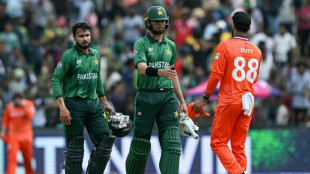 Pakistan to play India at T20 World Cup after boycott called off
Pakistan to play India at T20 World Cup after boycott called off
-
Emergency measures hobble Cuba as fuel supplies dwindle under US pressure

-
 UK king voices 'concern' as police probe ex-prince Andrew over Epstein
UK king voices 'concern' as police probe ex-prince Andrew over Epstein
-
Spanish NGO says govt flouting own Franco memory law
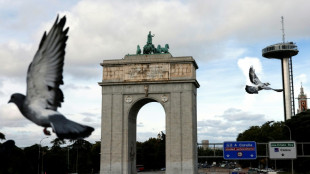
-
 What next for Vonn after painful end to Olympic dream?
What next for Vonn after painful end to Olympic dream?
-
Main trial begins in landmark US addiction case against Meta, YouTube

-
 South Africa open T20 World Cup campaign with Canada thrashing
South Africa open T20 World Cup campaign with Canada thrashing
-
Epstein accomplice Maxwell seeks Trump clemency before testimony

-
 Discord adopts facial recognition in child safety crackdown
Discord adopts facial recognition in child safety crackdown
-
Some striking NY nurses reach deal with employers


Africa's large birds of prey facing 'extinction crisis': study
The flamboyantly plumed Secretary Bird and the serpent-catching Snake Eagle are among dozens of Africa's large birds of prey facing a human-driven "extinction crisis" researchers said on Thursday.
Previous research has shown that rapid human and agricultural expansion has had a particularly dire impact on vultures in Africa, due to habitat change and poisoning.
But the new study by researchers at the University of St Andrews and The Peregrine Fund found that other large birds of prey -- or raptors -- that do not depend on scavenging and are less vulnerable to poisoning had also suffered similarly severe depletions.
Scientists said these large birds of prey in decline face a "double jeopardy" -- increasingly dependent on protected areas, they also have a more restricted habitat.
Unless Africa's conservation network is extended and other human threats are eased, "large raptor species are unlikely to persist over much of the continent's unprotected land by the latter half of this century", said lead author Philip Shaw, honorary research fellow at the University of St Andrews.
The study, published in Nature Ecology and Evolution, measured changes in population abundance for 42 raptor species in Niger, Burkina Faso, Mali, northern Cameroon, Kenya and Botswana during two periods, 1969 to 1995 and 2000 to 2020.
Of the birds studied, 37 species had witnessed declines, with 29 plummeting by at least 30 percent over three generational periods.
The authors concluded that as a group, Africa's diurnal raptors -- those active during the day like eagles -- "are facing an extinction crisis, with more than two-thirds of the species examined potentially qualifying as globally threatened".
- Human impact –
Larger birds are particularly at risk because they need a wider habitat and breed more slowly than smaller birds, rendering their populations less resilient.
Human threats include shooting, trapping, poisoning, electrocutions or collisions with energy infrastructure, with birds killed for food or belief-based reasons.
The animals they prey on are also targeted.
Species declines were most pronounced in West and Central Africa, where protected areas are particularly underfunded.
High regional levels of poverty and corruption have been linked to adverse conservation outcomes for numerous charismatic mammal species, according to the study.
To protect the birds, the researchers point to two solutions.
The first is to expand protected areas in Africa in line with one the goals set at the Convention of Biological Diversity (COP 15) in 2022 -- to effectively conserve and manage at least 30 percent of the world's surface by 2030.
Currently, protected areas account for just 14 percent of Africa's land and inland waters, Shaw said.
The second is to manage existing protected areas more effectively, Shaw added.
Researchers stress that effective conservation of large birds of prey is in human societies' best interests.
Vultures, for example, by scavenging carcasses can limit the transmission of zoonotic diseases to human populations, Shaw said.
The loss of big predators also has a profound effect on ecosystems.
Without them, prey populations can become unregulated and damage crops.
"In Africa, losing the largest and most uniquely adapted avian predators will most likely have the biggest impact on ecosystem function," Shaw said.
A.Mahlangu--AMWN


